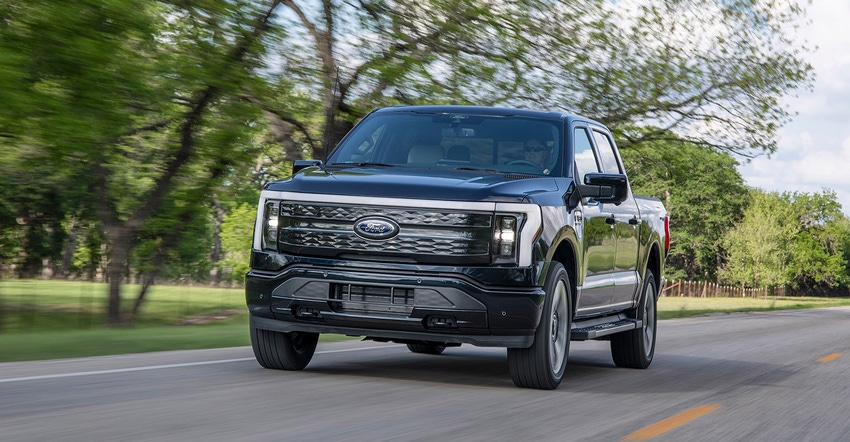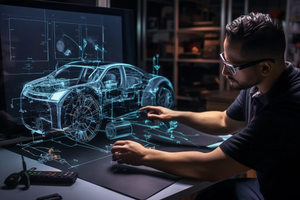Ford’s Charles Poon: ‘Sustainability Is a Defining Issue’
A full 23 years after the company's first annual sustainability report, Ford’s global director of electrified systems engineering discusses goals and progress.

On September 14th, Ford Motor Co. Global Director of Electrified Systems Engineering Charles Poon will make a keynote presentation on “Optimizing EVs for a More Sustainable Future” at the North American Battery Show and EV Tech Expo in Novi, MI. He’ll have a lot to talk about.
Ford has staked out a strong position on sustainability. According to its 2022 Sustainability Report, “Ford is the only full-line U.S. automaker to align with the Paris Agreement and to stand with the California Air Resources Board in support of stronger GHG standards from vehicles,” and has “pledged to work towards sales of all new cars and vans being zero-emission globally by 2040 and are on track to have 50% of our global vehicle mix fully electric by 2030.”
And the company does more than just make promises: Earlier this month, Ford received not one but two Altair Enlighten Awards, which recognize sustainability and lightweighting advancements in the automotive industry:
The Altair Sustainable Product award went to the 2022 F-150 Lightning, with Altair noting its “extended range battery that delivers up to 580 hp and 775 lb.-ft. of torque—the most torque of any F-150 ever—as well as a high-tech front trunk and the ability to power your home if needed.”
And the Altair Sustainable Material award went to Ford for its wire harness clips made from recycled ocean plastic debris. The award citation noted that “the material composition of these parts is collected by workers from plastic waste in the Indian Ocean and the Arabian Sea, promoting healthier marine life, reducing landfill waste and energy use, and providing jobs."
Battery Technology recently spoke with Ford’s Charles Poon to get a preview of his upcoming presentation.
Can you comment on why sustainability has become such a defining issue for the company?
Poon: Sustainability has always been a defining issue since Ford was the first automotive company to issue a sustainability report 23 years ago. Ford has a long history developing sustainable products with our hybrids and EVs, sustainable materials, and manufacturing goals targeting carbon neutrality by 2050.
Ford’s project to turn ocean plastic waste into high-quality wire harness clips wone the company an Altair Enlighten Award. Does Ford have other reuse/recycling projects in the works that you can mention?
Poon: Ford is continuing to work with the larger material technical community to introduce more recycled materials creating that virtuous product lifecycle and our developments in battery recycling is an example of our goals to support the development of a sustainable strategy in the EV space.
Your Sept. 14th Keynote will be on “Optimizing EVs for a More Sustainable Future.” Can you talk in a general way about things Ford—and other auto OEMs—need to do to consider regarding sustainability when considering EV design and production?
Poon: Efficiency is at the heart of our efforts and using technology to address the key customer acceptance points related to cost, range and charging of EVs and diversifying/choosing the appropriate chemistries to relieve the pressure on supply chains during this growth period.
What else would you like attendees to know about your upcoming presentation?
Poon: Ford is just getting started and is addressing the multi-faceted challenges to design, manufacturing, service and end of life uses to deliver a sustainable future.
About the Author(s)
You May Also Like





